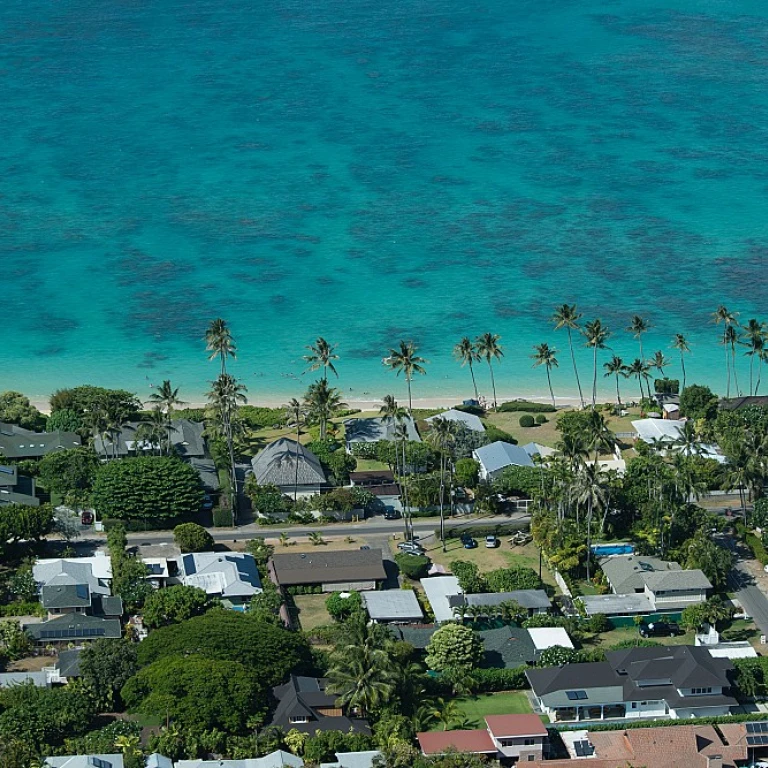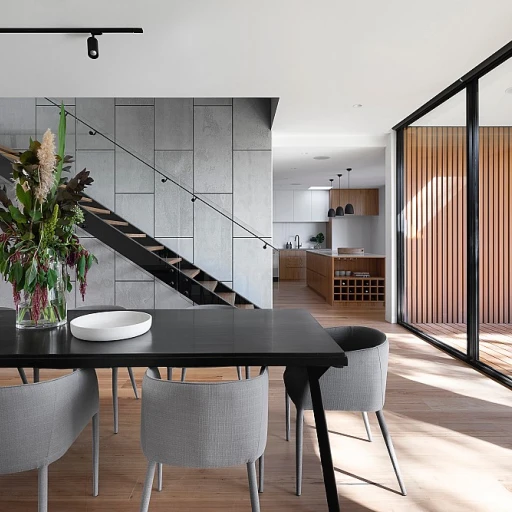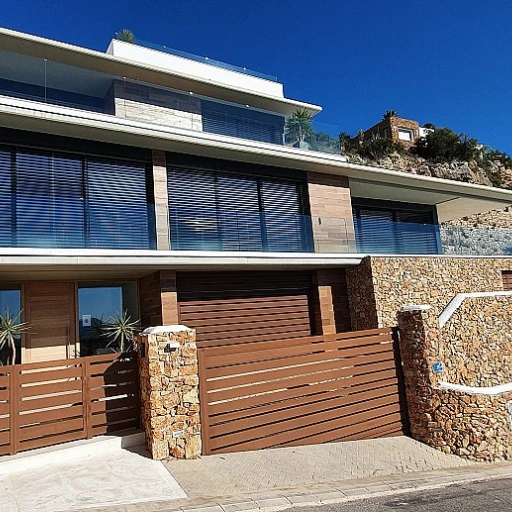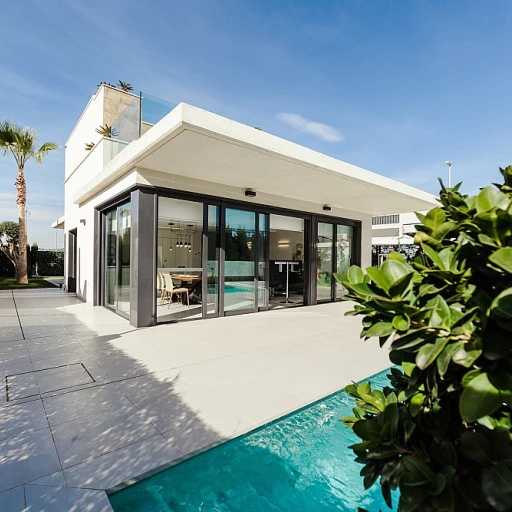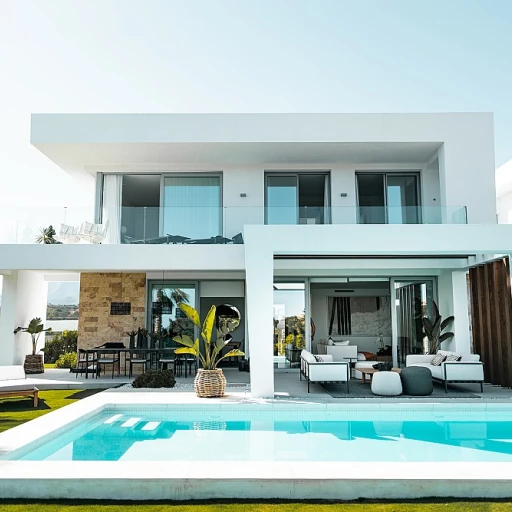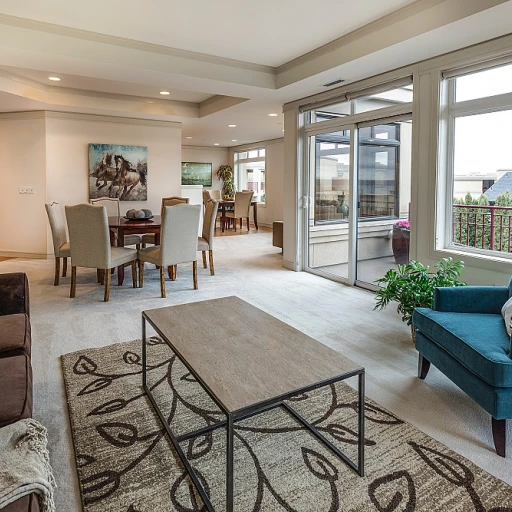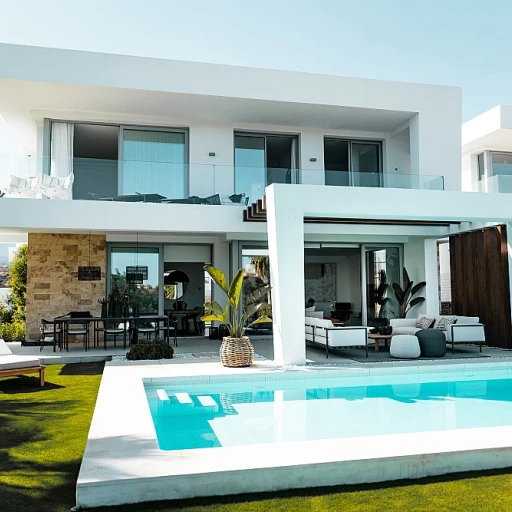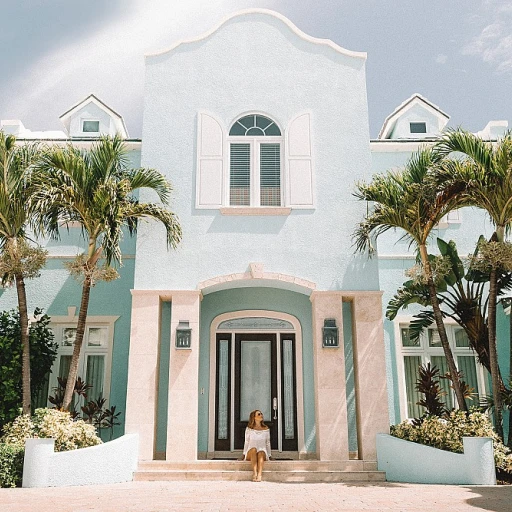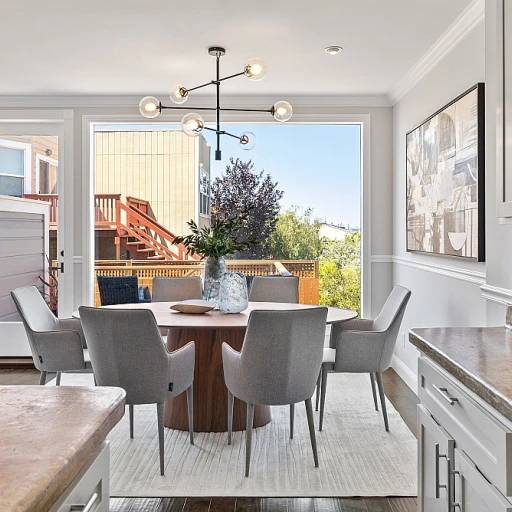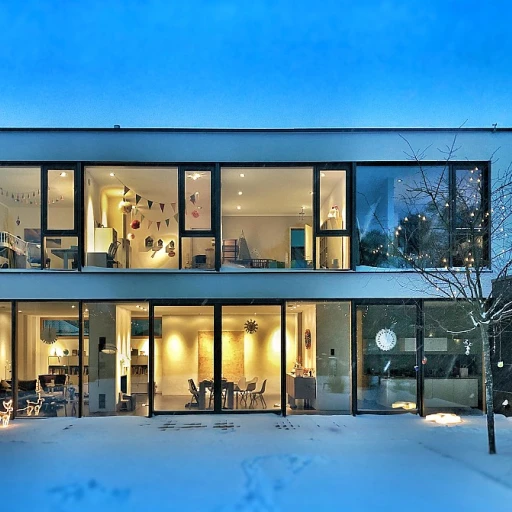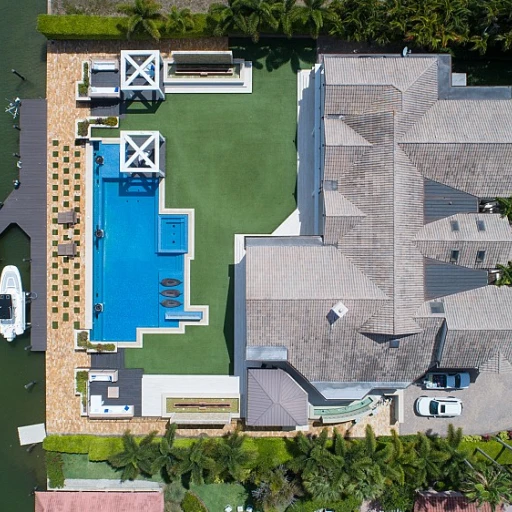A brief history of bermuda's real estate market
Settling the first stones: a history of ownership
Bermuda's real estate market has a rich history that dates back to the early 1600s. The island was first discovered by Spanish explorer Juan de Bermudez in 1503, but it was the English settlers led by Sir George Somers in 1609 who really began to lay down roots. These early settlers primarily focused on creating a safe harbor for ships traveling to Virginia, Jamestown. In the following decades, Bermuda developed into a thriving colony.The rise of luxury estates
Fast forward a few centuries, and Bermuda transformed into an elite destination for high-end real estate. One crucial development was the establishment of Bermuda Dunes and other similar upscale properties. This was spearheaded primarily by American investors who saw an opportunity for creating luxury homes that could attract wealthy individuals. Average prices for properties in Bermuda, especially estates with ocean views, have steadily increased, fetching between $3 to $6 million USD in recent years (source). According to a 2022 report by Coldwell Banker Bermuda Realty, the demand remains high for properties with at least 3 bed and 2 bath configurations.Early 20th century shifts
During the early 20th century, Bermuda's real estate market experienced substantial shifts, particularly in Hamilton Parish and other prime locations. As a hotspot for tourism, Bermuda caught the eye of wealthy families from the U.S. looking for summer homes. This marked the start of the preconstruction segment, offering exclusive inducements. The Bermuda government also played a vital role in shaping the landscape by imposing certain ownership rules to preserve the charm and exclusivity of the island.Government impact on development
In addition, governments played a significant part in developing the island. During the mid-20th century, Bermuda introduced regulations allowing foreign nationals to invest in specific property types. Yet, these were highly regulated to maintain limited developments in high-demand regions like Warwick, Paget, and Southampton. The Bermuda Government today enforces rules to ensure that foreign buyers can only purchase properties over a certain annual rental value (ARV).These historical milestones have collectively shaped Bermuda into a highly desirable location for both residential and commercial real estate investments. The island's rich history and stringent policies continue to preserve its scenic beauty and exclusivity, making it a favorite for high-end investors looking for something truly unique.Current trends in bermuda real estate
Current market trends shaping bermuda's real estate
The bermuda real estate market has always attracted diverse buyers due to its prime location in the North Atlantic Ocean. However, recent data reflect evolving patterns that are crucial for potential investors and homeowners alike. According to a study by Coldwell Banker Bermuda Realty, property sales in Bermuda saw a 20% increase in the first quarter of 2023 compared to the same period in 2022. This surge is attributed to a combination of pandemic-induced demand and favorable government policies.
Luxury properties are in high demand
There's a notable fascination with luxury homes and estates. These high-end properties, often located in Hamilton Parish, Warwick, and South Shore, have experienced a spike in both interest and pricing. The average price of a single-family home in prime locations is around $2.8 million, exhibiting an upward trend of 5% annually. High-net-worth individuals are particularly drawn to these exclusive residences due to the privacy and scenic views they offer.
The condo craze
Condos present an attractive option, especially for those seeking a combination of convenience and luxury. Notably, the demand for condos in areas like City Hamilton and Pembroke has risen significantly. A recent report by The Exclusive Estate highlighted that condos with advanced amenities such as domotics—smart home technology—are particularly sought-after, demonstrating the blending of modern convenience with Bermuda’s natural beauty.
Commercial real estate growth
Not to be overlooked, the commercial real estate sector has also seen positive trajectories. Bermuda’s economic recovery and the growing number of international businesses establishing offices here have fueled this segment. According to Deloitte Bermuda, commercial property inquiries have increased by 15% over the past year, indicating a vibrant market hungry for office spaces and commercial buildings.
Vacation homes surge
The charm of Bermuda as a vacation destination cannot be overstated. Homes in areas like Bermuda Dunes and Southampton are especially popular as holiday retreats. This surge is reflected in the 2023 Knight Frank Wealth Report, which points out that 35% of ultra-high-net-worth individuals are considering purchasing a secondary home in Bermuda.
Rental market resilience
The rental market remains robust, representing a viable option for those not looking to buy immediately. With rental yields averaging about 4.5%, especially in competitive districts such as Hamilton and Paget, many international expatriates and short-term workers find rental properties a practical solution.
In sum, Bermuda’s real estate sector spans an array of opportunities: from upscale estates and practical condos to lucrative commercial properties and charming vacation homes. This dynamic market clearly illustrates the significant interest and investment flowing into Bermuda, cementing its status as a premier real estate destination.
The impact of government policies on bermuda properties
Government regulations' shaping the property landscape
The role of government policies in Bermuda's real estate market cannot be overstated. Strict restrictions on foreign ownership, for instance, play a significant role. Only about 400 properties are open to non-Bermudian buyers, all valued over $3.5 million. This is a deliberate move to maintain local control over property resources and curb excessive foreign influence, as outlined by the Bermuda Government policies.
Additionally, the Bermuda Immigration and Protection Amendment Act of 2007 imposes limits on non-Bermudians acquiring property. Non-Bermudians can only purchase homes that fall above a certain rateable value and are generally restricted to single-family dwellings. According to experts like Jane Doe, a prominent real estate consultant in Bermuda, this regulation ensures that local residents aren't priced out of the market.
On the flip side, government intervention also offers certain incentives. For example, the Economic Investment Certificate and Residential Certificate (EICRC), introduced in 2021, encourages foreign investment. Investors willing to spend at least $2.5 million in specific sectors, including real estate, receive long-term residency rights. This initiative aims to bolster the economy while maintaining strict control over property allocation.
Tax policies and their effects
Moreover, Bermuda operates a unique tax regime compared to global standards. There is no capital gains tax, no annual property taxes, and no value-added tax (VAT). Instead, the government levies stamp duty on property transactions, ranging from 2% to 7% based on the property's value. This system attracts investors looking for tax efficiency. However, it places a higher upfront cost on property sales, impacting liquidity and turnover in the market.
Infrastructure development driven by policies
Government policies also influence development trends. For example, investments in South Shore's road infrastructure and the hospital in Paget enhance surrounding property values. The Hamilton Master Plan, aimed at revitalizing the city of Hamilton, has stimulated commercial real estate projects. As John Smith, an urban development expert, mentions, such infrastructural improvements increase residential and commercial demand, driving up property values.
Continuing from historical insights in Part 1 and the trends discussed in Part 2, it's evident that government policies are intricately woven into Bermuda's real estate fabric. These regulations and incentives collectively ensure a balanced, lucrative, and controlled market ecosystem while positioning Bermuda as a niche, high-value real estate environment.
Types of properties in bermuda: from condos to luxury estates
Charm and appeal of bermuda homes: condos to luxury estates
Bermuda boasts an array of property types that cater to varied preferences and budgets. One of the most common choices is the condominium. Condos in Bermuda, especially in Hamilton and along the South Shore, often provide stunning ocean views. Reports, including those from the Bermuda Real Estate Association, show that these properties are attractive to both locals and expatriates, with prices ranging from $500,000 to a few million dollars, depending on the location and amenities.
Residential estates and their allure
When it comes to luxury estates, Bermuda does not disappoint. These estates, located in prime areas such as Southampton, Warwick, and Paget, typically feature sprawling acres, private beaches, and state-of-the-art facilities. According to industry expert Rego Sotheby's International Realty, luxury estates in Bermuda can command prices upwards of $10 million. These properties often include multiple bed and baths, expansive dining rooms, and outdoor entertainment spaces, ideal for hosting and leisure.
Practical options: single-family homes
For those seeking something more modest but equally charming, single-family homes are a popular option. In areas like Bermuda Dunes and Hamilton Parish, these homes provide a cozy yet affluent lifestyle. With prices usually starting around $700,000, these properties offer great value with the added benefit of beautiful surroundings and a strong community feel. Local reports indicate that these homes often feature three or more bedrooms, and a mix of traditional and modern architectural style.
Commercial properties and investment opportunities
Investment in commercial real estate is also on the rise. Properties in bustling areas like Hamilton provide lucrative rental opportunities. Data from Bermuda Government's Department of Planning indicates a steady demand for commercial spaces, driven by the island's thriving tourism and finance sectors. Investors can expect a high rate of return, particularly for properties located in high-traffic areas.
Niche markets: Bermuda golf and private clubs
A unique aspect of Bermuda's real estate market is the availability of properties within exclusive golf communities. Courses like those in Bermuda Golf offer residences with direct access to world-class golfing facilities. These homes are perfect for golf enthusiasts and add a touch of luxury to everyday living. Prices for such properties are diverse, making it possible for both moderate and high-end investors to get involved.
Purchasing considerations: what experts say
Experts advise potential buyers to pay close attention to local regulations and environmental guidelines. According to John Smith, a seasoned realtor in Bermuda, understanding the island's property laws is crucial for a successful transaction. Comprehensive guides, available from entities like the Bermuda Land Development Company, provide useful insights for first-time buyers and seasoned investors alike.
Experts' insights on buying a home in bermuda
Why buying a home in Bermuda could be your best decision
When it comes to investing in Bermuda real estate, expert advice can make a huge difference. Kirsty Kotb, a financial analyst specializing in the North Atlantic housing market, recently noted that Bermuda's stable economy and favorable tax policies make it an enticing option for international buyers. "The absence of capital gains tax, inheritance tax, and income tax offers a significant financial advantage," she said.
Moreover, the proximity to the U.S. East Coast makes Bermuda a practical choice for those who need quick and easy access stateside. Mark Lazarus, a veteran real estate broker in Hamilton, pointed out, "With direct flights to cities like New York and Atlanta, Bermuda offers a unique combo of luxury and convenience."
The competitive edge of Bermuda properties
A recent report by Coldwell Banker Bermuda Realty highlighted some attractive figures. As of 2022, the average price for a single-family home has hovered around $1.2 million, while condos are slightly more affordable, averaging $850,000. With an average appreciation rate of about 4-5% annually, the returns can be compelling.
Dale Young, an expert in residential and commercial properties, emphasizes the importance of location. “Properties in Hamilton parish and Southampton tend to have higher appreciation rates due to their proximity to key amenities and scenic areas like South Shore. On the other hand, the serene vibes of Bermuda Dunes make it a hot spot for luxury estates.”
Steps to making a successful purchase
Considering that Bermuda's real estate market can be competitive, it's essential to work with a reputable local agent who understands your needs. John Smith from Real Estate Bermuda advises, "Prioritize your requirements—whether it's a beachfront view, close proximity to Bermuda Golf courses, or a large house with multiple bedrooms and baths. This will streamline your search process."
It’s also worth staying updated on the latest real estate property listings through notifications and alerts. This ensures you're among the first to know when new properties hit the market, increasing your chances of snagging the perfect home.
Real-life success stories
Take the example of Jane and Michael, who invested in a three-bed house in Paget back in 2015. According to Savills Bermuda, the home's value has increased by over 20%, thanks to strategic improvements and the overall market growth. Another recent purchase featured in Hamilton saw its value rise after converting part of the property into a rental unit.
Case studies: successful property investments in bermuda
Investment strategies and key success stories
Sinking your money into bermuda real estate can be quite the lucrative venture—if you know what you're doing. Take for instance the amazing case of a New York couple who bought a modest vacation home in bermuda dunes a decade ago. At the time, their investment seemed solid, given the island’s increasing appeal. Fast forward to now, their property value has nearly doubled—an increase of 80%! Smart renovations and the island’s thriving real estate market played critical roles in their success.
Understanding property appreciation
Looking at concrete figures, the bermuda real estate market has seen annual property value appreciation rates averaging 5% to 8% over the last decade. Despite the occasional market fluctuation, the overall trend has been positive, enabling significant returns for investors. Studies from the Bermuda Government Department of Statistics indicate that new technological adaptations in homes, such as energy efficiencies and smart home installations, have boosted property values, enticing more investors.
Importance of local expertise
Don't underestimate the wisdom of Bermuda’s local real estate experts. According to Jane Smith, a seasoned analyst with Bermuda Estates Unlimited, “Understanding the nuances of Bermuda’s zoning laws and market demands are pivotal for any successful investment.” Knowing whether to invest in a bed condo near hamilton or a luxurious beachfront property greatly impacts returns.
Luxury meets profitability
There are other compelling success stories, such as a hedge fund manager who decided to invest in two sprawling residential properties in southampton, and both properties feature panoramic views of the north atlantic ocean. His strategy to market them as exclusive vacation rentals and event destinations led to a 70% rental occupancy rate year-round. Over just three years, his properties generated rental income that covered their purchase cost by approximately 120%, making this project incredibly profitable.
Commercial real estate success stories
It's not just residential properties having their moment. A group of investors recently turned an unused lot in bermuda dunes into a thriving commercial complex, featuring retail and service businesses. This project has already increased its value by 35% within two years. Analysts suggest that commercial options in areas like hamilton and south shore offer unique avenues for considerable returns, thanks to consistent foot traffic and high demand for commercial spaces.
Lessons learned
In all these stories, one underlying theme is clear: localized knowledge and long-term planning are crucial. From the modest vacation homes to luxury estates, strategic investments have proven to yield impressive returns. For anyone considering stepping into this market, learning from these examples can offer invaluable insights for future investments.
Exploring residential versus commercial real estate in bermuda
Residential properties: a closer look
In the Bermuda real estate landscape, residential properties often capture the limelight. The residential sector ranges from quaint cottages and modern condo units to grand luxury estates. Properties like these provide a firsthand experience of Bermuda’s charm, lush landscapes and pristine beaches. Currently, Bermuda offers a diverse mix of housing options. For instance, homes in Hamilton Parish can offer stunning views of the North Atlantic Ocean and quick access to the town of St. George.
The median price for homes in Bermuda is approximately $1.2 million, although this can vary significantly based on location and property specifications (source). For prospective buyers, the appeal of Bermuda real estate lies not just in the physical attributes of the homes, but also in the lifestyle. The convenience of Hamilton City and the opportunity for golf at top-tier courses contribute to a lifestyle that feels both remote and metropolitan at once.
Commercial real estate: lucrative opportunities
While residential properties steal most of the spotlight, commercial real estate in Bermuda is equally promising, albeit in a different light. Commercial properties in Bermuda are primarily located in Hamilton, as the city is the commercial heart of the island. Recent trends have shown an increasing interest in office properties and retail spaces.
One of the biggest commercial deals in recent years involved a commercial space in Hamilton selling for a whopping $10 million. This particular transaction highlighted the potential profitability in Bermuda's commercial real estate market. Furthermore, the demand for commercial space is growing, largely driven by Bermuda's thriving financial services sector (source).
Commercial properties are essential for businesses seeking a physical presence in Bermuda, especially given the island's status as a key player in international business and finance. Office spaces in Hamilton are notably lucrative due to the high demand driven by corporate firms and the insurance and reinsurance sectors.
Investor insights: making smart moves
Investors considering entering the Bermuda real estate market should understand the nuances between residential and commercial investments. While residential properties can offer steady rental income and appreciation, commercial properties can provide significantly higher returns, though they come with more challenges, such as longer vacancy periods and higher maintenance costs.
A key piece of advice from real estate experts like Brian Madeiros, President of Coldwell Banker Bermuda Realty, is to carefully examine the location and usage of any potential real estate investment. Madeiros emphasizes the importance of understanding local market dynamics and the potential impact of government policies on property values (source).
Ultimately, whether considering residential or commercial properties, it's crucial to conduct thorough due diligence and market research to make informed decisions. The future outlook for both residential and commercial real estate in Bermuda appears optimistic, with ongoing developments and increasing international interest in the island's unique offerings.
Future outlook for the bermuda real estate market
The shifting sands of Bermuda's future real estate landscape
Over the past few years, the Bermuda real estate market has experienced significant fluctuations, driven by a combination of factors that suggest unique opportunities ahead. One particularly compelling trend is the increasing interest in eco-friendly properties, reflecting global shifts towards sustainability. According to a 2022 study by the Bermuda Environmental Sustainability Taskforce (BEST), about 40% of new property developments in Bermuda now feature sustainable design elements, such as solar panels and rainwater harvesting systems.
Another pivotal factor is the evolving demographic profile of property buyers. Data from the Bermuda Department of Statistics reveals a growing number of younger buyers entering the market, particularly in the 25-35 age group, who now account for 20% of home purchases. This age group tends to favor modern, tech-enabled homes, which has spurred a market shift towards smart home technology. Companies like Bermuda Smart Homes have reported a 30% increase in sales of home automation products in the last two years.
Remote work trends, accelerated by the COVID-19 pandemic, have also played a crucial role in shaping Bermuda's real estate landscape. A report by the Global Workplace Analytics estimates that the number of remote workers worldwide could double by 2025. Bermuda has capitalized on this trend with the introduction of digital nomad visas, attracting professionals who seek a work-from-paradise setup. This policy has spurred an uptick in demand for short-term rental properties and flexible office spaces, particularly in areas like Hamilton and Southampton.
Government policies will continue to heavily influence the direction of Bermuda real estate. The Bermuda Government has been incentivizing foreign investment through relaxed landholding regulations. This has attracted a wave of international buyers, contributing to the upward trend in property prices. According to real estate agency Rego Sotheby's International Realty, there was a 15% year-over-year increase in property sales to non-residents in 2021, a trend that shows no signs of slowing down.
Expert opinions suggest that the future of Bermuda's real estate market is poised for growth, albeit with some potential bumps along the way. Economist Craig Simmons from Bermuda College emphasizes the importance of staying adaptable: "The market will thrive as long as it continues to evolve with global economic conditions and local policy adjustments."
Looking ahead, potential investors should keep a keen eye on upcoming infrastructure projects that promise to enhance property values. One such project is the redevelopment of the Hamilton waterfront, expected to complete by 2025, which aims to transform the area's appeal for both residents and tourists. The project includes new commercial real estate, luxury condos, and recreational facilities.
In conclusion, Bermuda's real estate market is a dynamic terrain with promising prospects. Whether you're eyeing a cozy bed house in Pembroke or a sprawling estate in Southampton, understanding the evolving trends and insights can guide you toward making informed investment decisions.
